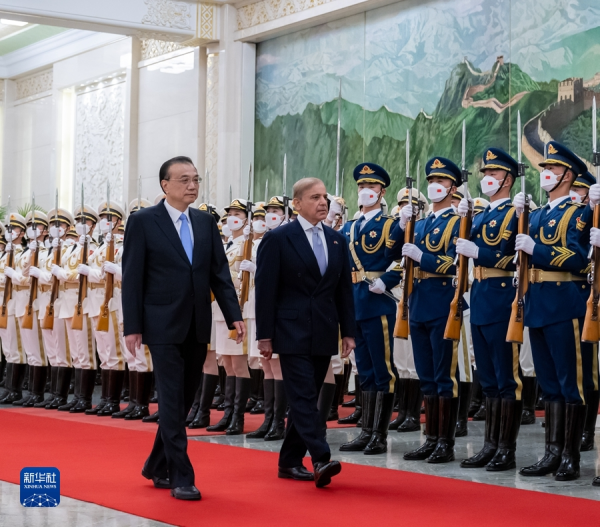In a significant move to bolster their bilateral relations, Pakistan and China signed six crucial agreements and Memoranda of Understanding (MOUs) during a ceremony witnessed by Prime Minister Shehbaz Sharif and Chinese Vice Premier He Lifeng in Islamabad. The agreements cover a wide range of areas, including the China Pakistan Economic Corridor (CPEC), experts exchange mechanism, trade, and strategic projects. The signing marks a milestone in the enduring friendship between the two nations and is poised to further enhance economic cooperation and propel both countries towards shared progress and prosperity.
Strategic Collaboration in CPEC
One of the key agreements signed during the ceremony pertains to the joint cooperation committee of the China Pakistan Economic Corridor (CPEC). Minister for Planning and Development Ahsan Iqbal and the Vice Chairman of the National Development and Reforms Commission of China put pen to paper in this momentous deal. CPEC has already witnessed over $25 billion worth of investments in Pakistan’s power and hydel sector, road infrastructure, and public transport. The signing of this agreement signals the start of the second phase of CPEC, wherein both nations aim to explore investments in sectors like agriculture and information technology.
Expanding Trade Horizons
Another vital document signed pertains to the establishment of an experts exchange mechanism within the framework of CPEC. Minister for Planning and Development Ahsan Iqbal, along with the Vice Chairman of the National Development and Reforms Commission of China, formally agreed to this exchange mechanism, fostering knowledge sharing and strengthening cooperation between the two countries.
In a move to promote trade in agricultural products, the Secretary of the Ministry of National Food Security of Pakistan, Zafar Hassan, and the Chinese Charge D’Affaires, Pang Chunxue, signed a significant document for the export of dried Chillies from Pakistan to China. This agreement opens up new avenues for Pakistani agricultural products in the vast Chinese market, creating opportunities for economic growth and prosperity.
Advancing Infrastructural Projects
The realignment of Karakoram Highway Phase II project feasibility study took a step forward with the signing of another document. Member planning of the National Highway Authority, Asim Amin, and the Chinese Charge D’Affaires, Pang Chunxue, inked this agreement, further solidifying the partnership between the two countries in advancing vital infrastructural projects.
Moreover, both nations agreed to promote the strategic ML-1 project, aiming to bolster connectivity and transportation in the region. This project is set to bring significant economic benefits to Pakistan and strengthen the bond between the two countries.
The signing of six agreements and MOUs between Pakistan and China reflects the strong and enduring bond between the two countries. Prime Minister Shehbaz Sharif expressed his confidence that these initiatives would pave the way for immense progress and prosperity. The agreements cover vital sectors like CPEC, trade, and strategic projects, and are expected to strengthen the economic ties between Pakistan and China. As both countries embark on the second phase of CPEC, they are poised to emulate the Chinese model of development to achieve peace and prosperity in the region. The signing ceremony marks a new chapter in the relationship between Pakistan and China, reaffirming their status as “all-weather friends” and “iron brothers.”















